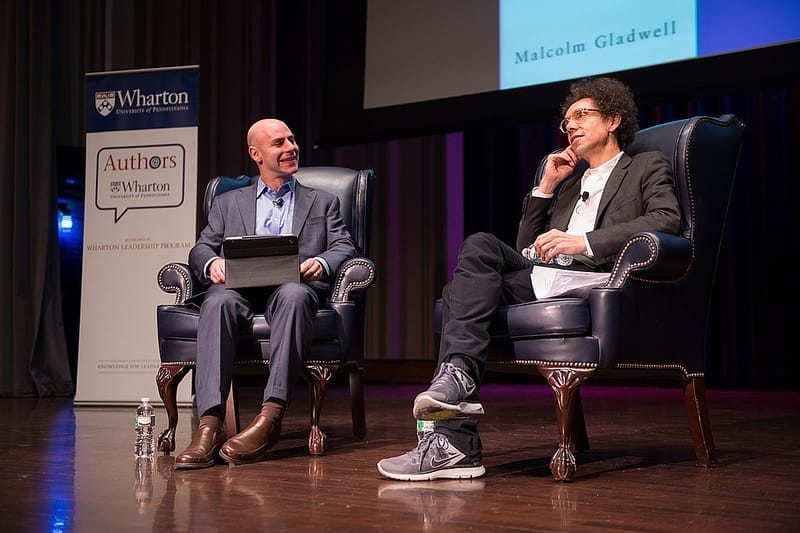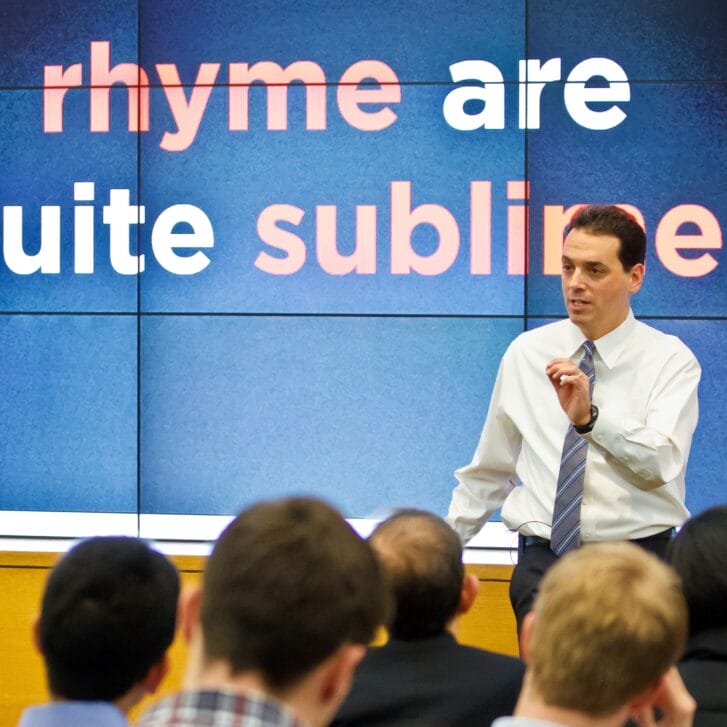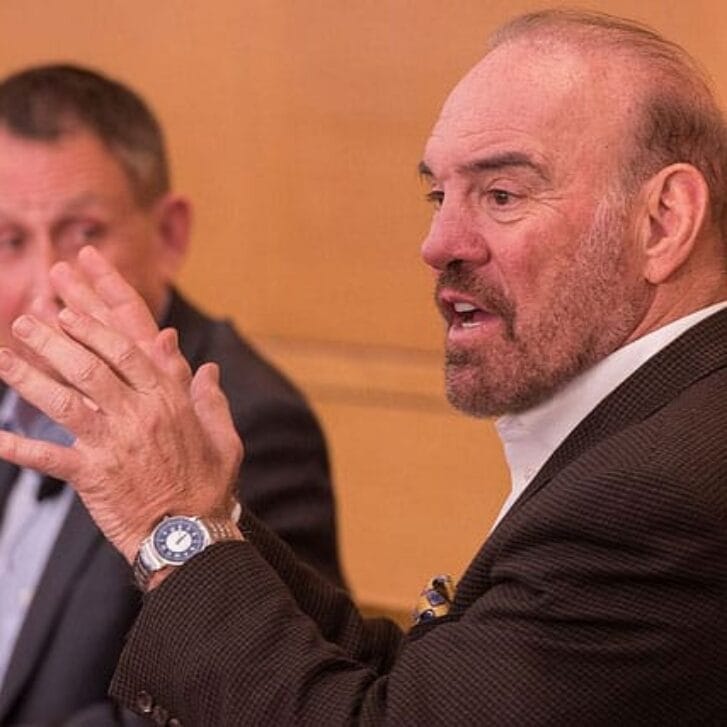Influential author Malcolm Gladwell’s November discussion at Penn was so dynamic it has stuck with me for a month. He managed to include Kanye West, immigration, Alva Vanderbilt and a thank you to Penn for being “extremely forgiving” in the same talk. This topical diversity, along with a Q&A moderated by Wharton Professor of Management and the Class of 1965 Chair Adam Grant, left the Penn audience, including myself, energized and buzzing. Though I overheard one student exclaim, “He’s just a guy—with crazy hair!” after the speech, the line for autographs following the event showed just how much attention Gladwell commands.
A self-professed “social science groupie,” Gladwell devoted some of his Penn talk to his new book, David and Goliath: Underdogs, Misfits and the Art of Battling Giants. Plenty of people get angry. But what makes someone angry enough to do something, to battle a giant?
Gladwell has two theories. One is lack of deterrence—the idea that if perceived benefits outweigh the costs of disobedience, people will act. This is a logical and more well-known approach to why people defy authority.
Things get interesting when you look at other examples of why people defy authority, Gladwell says.
“I think the human baseline is to cheat, so when you have a situation where people are not cheating and they should, you ask ‘Why?’” he said.
The U.S. tax system, Gladwell noted, should be the prime place where people cheat. The people in the United States are so honest on tax day, he quipped, that “the only people in the world just as honest are the Swiss, maybe.” The number of people who are audited on their tax returns every year is extremely low—and the cost of a penalty on taxes you haven’t paid usually only consists of a small fine. So the lesson here, he said, is: “You should just cheat on your taxes because you won’t get caught, and if you do, it won’t be that bad.”
Why do U.S. citizens follow the rules? Gladwell explained that the IRS has legitimacy, and that the moment Americans perceive that it does not, they have the power to gripe and affect change.
“Do you think the Greeks are honest on tax day? No!” he argued.
Greek citizens have no way to voice concerns about unfair tax laws. They do not think the taxes they pay are legitimate, nor do they feel they receive any respect from the Greek government regarding paying taxes. And that is why they cheat, he said.
This is where his second theory comes in—legitimacy. If people do not perceive an authority as legitimate, they will get angry. Gladwell notes that for an authority to be legitimate, it has to be fair, trustworthy and respectful.
Gladwell used the example of Protestants versus Catholics in Ireland in the early 1900s, and the subsequent violence that ensued throughout the last century. The growing anger of both groups led to a conflict that enveloped Northern Ireland for decades.
This year has seen its fair share of conflicts and uprisings in the Middle East and around the world. Every time you turn on the news, Edward Snowden or other government “leakers” are flashing by with messages of educating the masses about the “truth” behind what their governments are doing. Gladwell’s book about what makes a person—or a people—question authority and become angry enough to react is eerily timely. It will be interesting to see what underdogs overcome which Goliath in the year 2014.
Editor’s note: The lecture was part of the Authors@Wharton series, sponsored by the Wharton Leadership Program. View more photos of the Malcolm Gladwell talk at Penn at the Wharton Leadership Program Flickr photostream.


























